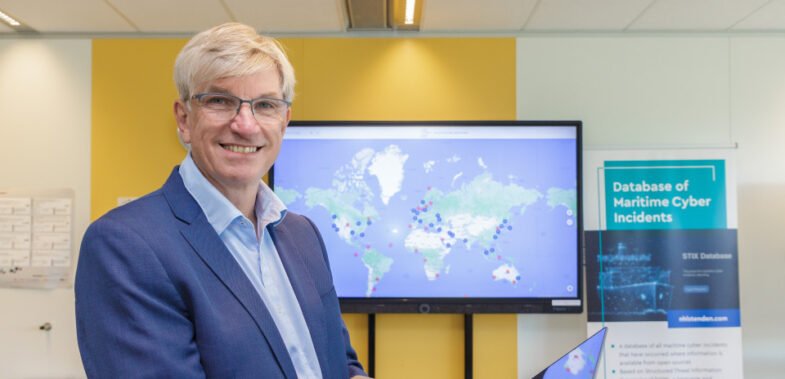More than 160 cyber incidents in the maritime industry have been the subject of information gathering by Maritime IT Security for the MCAD.

The Maritime Cyber Attack Database (MCAD) database was established by researchers under the direction of Stephen McCombie of NHL Stenden to map maritime cyber attacks from all over the world.
Stephen McCombie, NHL Stenden Maritime IT Security Lecturer, claims that the database contains more than 160 incidents that show the necessity of cyber security today’s maritime industry as well as its various weaknesses.
More than 160 cyber incidents in the maritime industry have been the subject of information gathering by Maritime IT Security for the MCAD.
In addition to incidents involving ships, the database also contains incidents involving ports and other maritime facilities from around the world.
The research team anticipates that the database will contribute to greater industry awareness of cyber security and serve as a source of information for additional study and more precise simulations in this crucial field.
“The database is intended to create a safer world in which the Global Maritime Transport System (GMTS) can respond to threats that will only increase in number and impact,” says Peter Mulder, director of the ICT & Creative Technologies academy at NHL Stenden.
Through the creation of this open database, our research team—led by Stephen McCombie and our collaborators—is able to conduct additional research into cyber attacks in the maritime industry.
The database can be used, among other things, to create simulations of maritime cyber incidents that are accurate and pertinent, allowing businesses, organisations, and ports to get ready for assaults.
The research team will also use the MCAD to create reports and academic papers that demonstrate trends and the outcomes of in-depth analysis on particular data subsets.
“The database is not a one-off, but will be regularly updated and supplemented,” added McCombie.
“For the initial investigation, we conducted a manual search, but we are currently working on artificial intelligence (AI) development to automate the identification of new incidents from open sources and learn more information about incidents that are already known to have occurred.”
Multiple cybera ttacks were launched against several Canadian ports this week in April 2023, but the ports are still open and cargo is still being moved.
